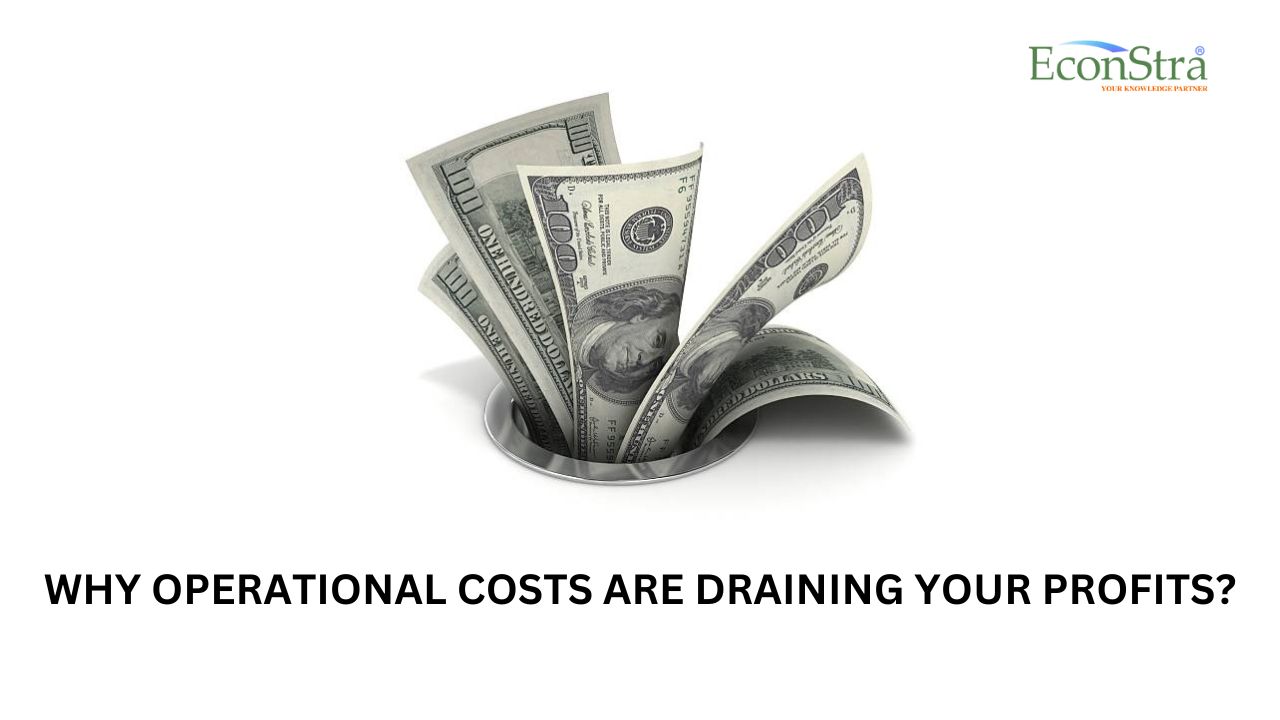by Subhadeep Chowdhury
Share

In the ever-evolving landscape of business, one thing remains constant: the need for financial stability and growth. As entrepreneurs and business owners, we all understand the importance of making informed decisions that can shape the future of our enterprises. This is where financial forecasting comes into play. Financial forecasting is not just a buzzword; it’s a vital tool that empowers businesses to anticipate their economic future with precision.
So, here, in this comprehensive guide, we will delve into the world of financial forecasting, uncovering its significance, methodologies, and practical applications.
Whether you are a seasoned professional or just starting your entrepreneurial journey, this blog will equip you with the knowledge and insights needed to harness the power of financial forecasting and navigate the unpredictable waters of the business world.
Understanding Financial Forecasting
Financial forecasting is the process of making educated estimates about a company’s future financial performance based on historical data and current market trends. It’s a crystal ball of sorts that enables business owners to anticipate potential challenges, seize opportunities, and make informed decisions. Let’s explore why financial forecasting should be a cornerstone of your business strategy.
Why Financial Forecasting Matters For Business Economic Future?
Financial forecasting offers a multitude of benefits. Firstly, it helps you plan for the future. By projecting your financial performance, you can set realistic goals and allocate resources efficiently. Secondly, it enhances decision-making. When you have a clear vision of your financial trajectory, you can make timely adjustments and avoid financial crises. Finally, it attracts investors and lenders. Accurate forecasts demonstrate your commitment to transparency and professionalism, making it easier to secure funding.
Types of Financial Forecasting
There are several types of financial forecasting, each serving a unique purpose. These include:
- Sales Forecasting: Sales forecasting involves utilizing historical sales data and comprehensive market analysis to predict a company’s future sales trends. By analyzing past performance and assessing market conditions, businesses can make informed decisions about inventory management, production capacity, and marketing strategies. Accurate sales forecasting is instrumental in optimizing resource allocation, ensuring customer demand is met, and ultimately, driving revenue growth.
- Expense Forecasting: Expense forecasting is the process of estimating a company’s future expenditures. It helps businesses manage costs effectively by providing insights into expected expenses, such as operational, administrative, and variable costs. This proactive approach enables budgeting, cost control, and identifying areas where cost-saving measures can be implemented. Effective expense forecasting ensures that a company remains financially stable and can invest in growth initiatives strategically.
- Cash Flow Forecasting: Cash flow forecasting is a crucial financial management tool that anticipates the ebb and flow of a company’s cash resources over a specific period. By analyzing anticipated income and expenditures, businesses can ensure they have sufficient liquidity to cover short-term obligations and seize opportunities. Accurate cash flow forecasting minimizes the risk of cash shortages, late payments, and financial instability, enabling a company to navigate economic fluctuations more effectively.
- Balance Sheet Forecasting: Balance sheet forecasting involves projecting a company’s assets, liabilities, and equity over a specific period, typically one year or more. This forecasting method provides a holistic view of a company’s financial health. It aids in long-term strategic planning, helping businesses assess their capacity for investments, debt management, and capital structure adjustments. Balance sheet forecasting plays a vital role in decision-making related to asset acquisitions, debt financing, and equity investments.
- Profit and Loss (P&L) Forecasting: P&L forecasting is a comprehensive financial projection that predicts a company’s revenue, expenses, and profits over a specified period, often on a monthly or annual basis. It serves as a roadmap for businesses to monitor their financial performance, assess profitability, and make timely adjustments to operations and strategies. P&L forecasting guides decision-making by providing insights into revenue growth opportunities, cost optimization, and overall financial health. It’s an essential tool for achieving and sustaining profitability in a competitive business environment.
Check our article on Financial Management Tips for Small Businesses
The Art and Science of Financial Forecasting
Now that we understand the importance of financial forecasting, let’s explore the methodologies and techniques that make it possible. Financial forecasting is a blend of art and science, requiring a systematic approach and a touch of intuition.
-
- Data Analysis: The foundation of financial forecasting lies in data analysis. You’ll need to gather historical financial data, market research, and other relevant information. Once collected, this data becomes the building blocks for your forecasts.
- Forecasting Models: Various forecasting models can be employed, depending on your specific needs and the available data. These include time series analysis, regression analysis, and scenario analysis. Each model has its strengths and weaknesses, so it’s essential to choose the one that aligns with your business goals.
- Assumptions and Risks: Financial forecasting often relies on certain assumptions about the future. It’s crucial to be aware of these assumptions and the associated risks. Factors like market volatility, economic conditions, and unexpected events can impact the accuracy of your forecasts.
Also read our article on: Why Choose Econstra For Financial Consulting?
Implementing Financial Forecasting in Your Business
Now that we’ve covered the fundamentals of financial forecasting, let’s discuss how to integrate it into your business operations effectively.
-
Selecting the Right Tools
Invest in reliable financial forecasting software or hire a professional to assist with the process. These tools can streamline data collection, model creation, and scenario analysis, saving you time and improving accuracy.
-
Establishing a Routine
Consistency is key to successful financial forecasting. Establish a regular schedule for updating your forecasts, whether it’s monthly, quarterly, or annually. This ensures that your predictions remain relevant and adaptable to changing circumstances.
-
Monitoring and Adjusting
Financial forecasting isn’t a set-and-forget process. Continuously monitor your actual financial performance against your forecasts. When discrepancies arise, don’t hesitate to adjust your strategies accordingly. Flexibility is vital in the ever-changing business landscape.
Challenges and Pitfalls Related to Financial Forecasting
While financial forecasting is a powerful tool, it has its challenges and potential pitfalls.
-
Overlooking External Factors:
Forecasting models rely on historical data and trends, often neglecting to factor in unforeseen external events like economic crises, natural disasters, or changes in regulations. It is imperative to remain vigilant and adjust forecasts promptly when confronted with such unexpected influences, ensuring adaptability and resilience.
-
Data Quality Issues:
The accuracy of forecasts hinges on the quality of data used. Inaccurate or incomplete data can result in flawed predictions. Safeguard against this by consistently validating and maintaining the reliability of your data sources through regular audits and data quality checks.
-
Overconfidence:
Excessive reliance on forecasts can foster unwarranted overconfidence in decision-making. It’s crucial to bear in mind that forecasts are essentially educated guesses and not certainties. Utilize them as valuable guidance but remain open to adaptation when circumstances require it, fostering a flexible and responsive approach to decision-making.
NOTE:
Amidst the complexity of financial forecasting, seeking guidance from a seasoned financial consultant like Econstra can be invaluable. These experts bring a wealth of experience in analyzing market trends, assessing risks, and devising tailored strategies to navigate uncertain economic landscapes. Collaborating with a trusted financial consultant can provide businesses with a comprehensive understanding of their financial health, aiding in making informed decisions to secure a stable and prosperous future.
The Final Word: Importance Of Financial Forecasting For Business Economic Future
Financial forecasting is the compass that guides businesses through the turbulence of economic uncertainty. By harnessing the power of data analysis, modeling techniques, and regular monitoring, you can steer your enterprise toward a prosperous future. Whether you’re planning for growth, securing investments, or simply ensuring your company’s survival, financial forecasting is an indispensable tool.
In today’s dynamic business environment, adaptability and foresight are the keys to success. Financial forecasting empowers you to make informed decisions, anticipate challenges, and seize opportunities. Embrace this essential practice, and you’ll be better equipped to navigate the ever-changing seas of the business world.
Remember, financial forecasting isn’t just a one-time exercise; it’s a continuous journey. Stay committed to refining your forecasts, adapting to changing circumstances, and steering your business toward a bright and prosperous future. The financial health of your business depends on it.
So, don’t delay. Start incorporating financial forecasting into your business strategy today and watch as it transforms your ability to predict and shape your economic future. Your business deserves nothing less than the best tools available to thrive in the competitive world of commerce.
STAY IN THE LOOP
Subscribe to our free newsletter.
Business consultant services provide the strategic insight and expertise necessary to steer your company through various challenges and opportunities. These professionals play a crucial role in helping businesses identify growth opportunities, optimize operations, and achieve long-term success. Understanding the Role of a Business Consultant A business consultant acts as an external advisor who brings a […]
In today’s competitive business landscape, companies are constantly seeking ways to reduce operational costs while maintaining or improving efficiency and customer satisfaction. Customer Relationship Management (CRM) systems have emerged as vital tools that enable businesses to achieve these goals. As a leading business consultancy, Econstra understands the importance of leveraging CRM technology to streamline operations, […]
Why Operational Costs Are Draining Your Profits? Operational costs are a critical aspect of running a successful business, but when not managed properly, they can drain your profits and stifle growth. In a competitive market, maintaining profitability requires keen oversight of expenses and strategic planning. Econstra, as a leading business consultancy, provides insights and strategies […]
In the rapidly advancing digital landscape, Artificial Intelligence (AI) tools have emerged as transformative assets for businesses. Their potential to enhance efficiency, streamline operations, and drive innovation makes them invaluable for business consultants and organizations worldwide. For business consultants in India, AI’s strategic application can be particularly advantageous in navigating a diverse and dynamic market. […]




